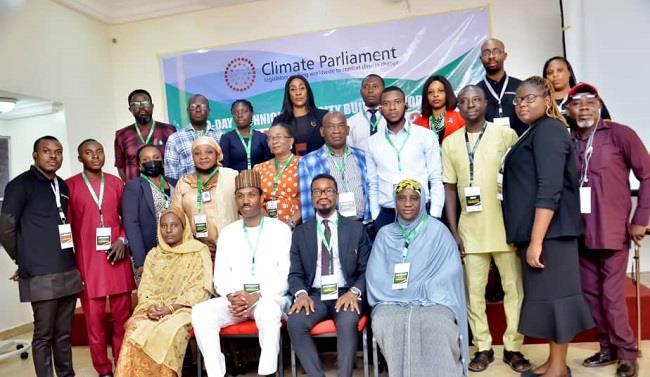Nigeria’s mean average temperature (MAT) could hit 29°C if concerted efforts are not in place to address the activities that disrupt the environment and influences the climate to change.

With a growing population of over 200 million people and projected to increase to 400 million by 2050, there is no doubt that the country needs to urgently figure out how to protect its citizens from the socio-economic vulnerability of ecological disasters.
Droughts, floods, frequent increases in weather temperatures, and low adaptive measures are some of the environmental crises the nation must overcome to safeguard its people from the anticipated calamity.
For many years, humans have habited in places considered to have a mean annual temperature (MAT) between 11°C and 15°C. Available knowledge reveals that under a business-as-usual emission scenario, temperatures are likely to increase over the coming 50 years than have changed in 6,000 years.
These unprecedented changes perhaps will force most people to migrate as a way of escaping from the heat, where it is not possible, the majority of the population has to endure the consequences of MAT above 29°C. One-third of the global population is estimated to experience this uneasy weather condition found in just 0.8% of the Earth’s land surface and concentrated in the Sahara Desert.
“For each additional degree Celsius of temperature rise, one billion people will find themselves living in areas that are simply too hot to sustain agriculture, livestock, and overall livelihood sources without air conditioning,” says Nick Dunlop, secretary-general of the Climate Parliament.
Dunlop, who made the statement in his opening remarks at a Two-Day Technical Capacity Building Workshop that was organised by Climate Parliament in Abuja, drew the attention of the participants to the significance of the Climate Change Act 2021, particularly in providing the legal framework to that will mainstream and promote climate change actions across the country.
While it is necessary to acknowledge the role of Legislature in fostering political will, “without the support of the Executive – through the Ministries, Departments, and Agencies – and the Judiciary, the legislation so enacted may remain in the books and lack social implementation,” he told participants.
Some of Nigeria’s finest statements on climate change include the 2060 net-zero targets ambition and the signing of the Climate Change 2021 Act. However, the chairperson of the Climate Parliament, Sam Onuigbo, is highly disappointed over the unnecessary delay that is hampering the implementation of the Act.
“To see the Act not being implemented with the inauguration of the council even when there is a clear timeline for certain things to be achieved, as stipulated in the Act,” the lawmaker decried, “should be a source of concern to Nigerians.”
This delay poses a setback in winning the fight against climate change because of its pivotal position as the main instrument to execute the Act, which is why public knowledge is essential in championing its implementation.
Building the capacities of parliamentarians and key ministries that are expected to constitute the council with the required knowledge is critical to attaining the nation’s climate change goal.
“We are supposed to have had the National Council on Climate Change established,” says Dr. Nkiruka Maduekwe, national coordinator, Climate Parliament Nigeria. “But, up till now, it has not been inaugurated.”
Things are currently put on hold because the council is the designated authority with the powers to approve the carbon budget after its preparation by the ministries of Environment, Budget and National Planning.
“What is needed to be done now is to inaugurate this council and the time to do it is now,” Dr. Maduekwe said. “We need to ask ourselves, what is Nigeria bringing to the table come COP27?”
Mr Oluyomi Banjo, who represented the United Nations Industrial Development Organisation (UNIDO), welcomed the meeting, saying that it is a step in the right direction.
He said his body would continue to support Nigeria’s pursuit for net zero emission.
Climate change is one of the most challenging development crises of the 21st Century which this generation must contribute to solving. And to be able to do this in Nigeria, the Minister of Environment, Mohammed Abdullahi, believes it is crucial to provide improved technical directions for implementing the newly signed National Climate Change Act.
The minister, represented by a deputy director of the Department of Climate Change (DCC), Dr. Aliyu Yauri, pointed out that climate change is no longer a distant threat; it is a reality and a sign of what lies ahead.
“This capacity-building workshop is highly commendable as it would help to strengthen the capabilities of future professionals in the field of climate change and environmental sciences,” he submitted.
By Etta Michael Bisong, Abuja
